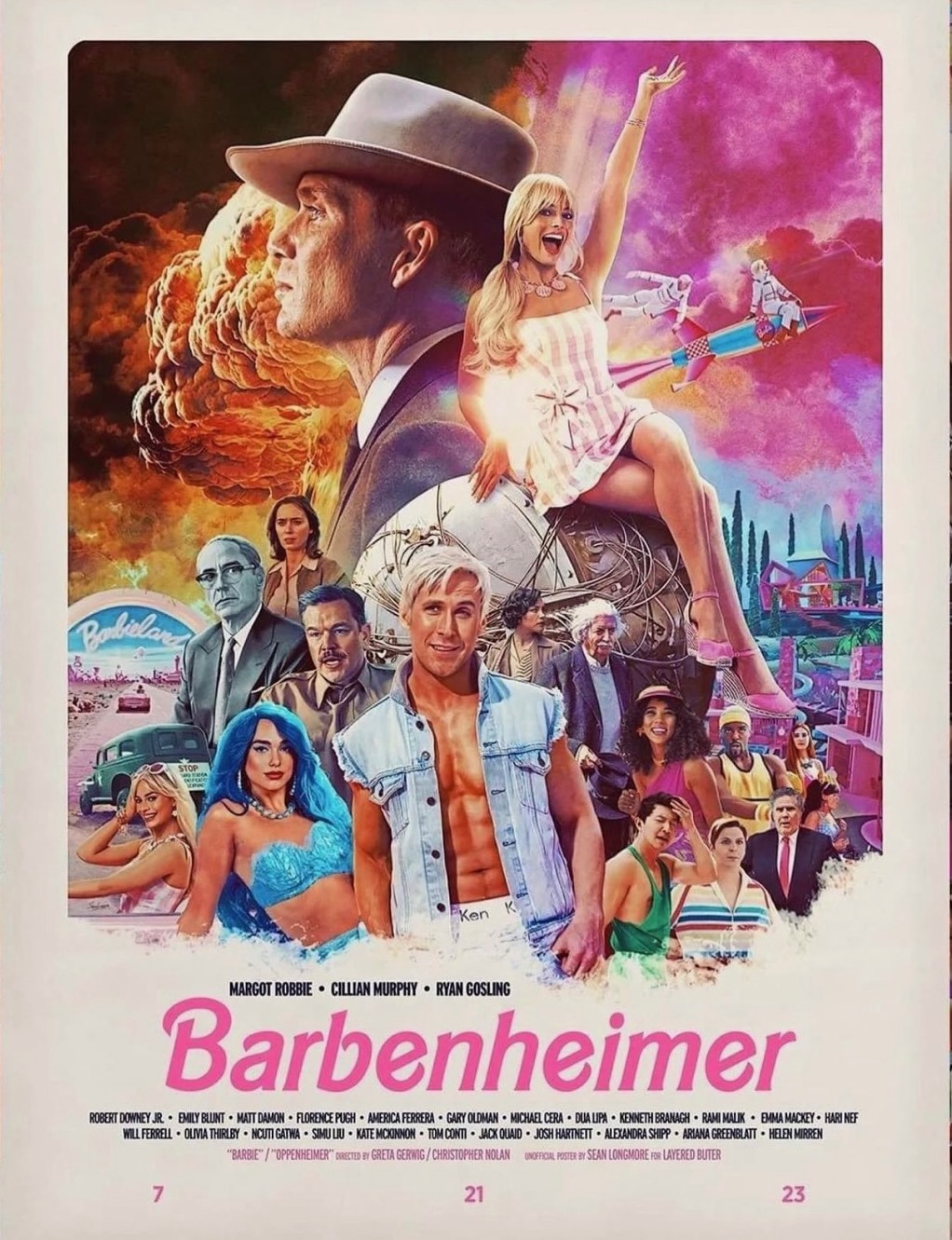Books to accompany ‘Barbenheimer’
“Barbenheimer” – a cultural phenomenon that arose due to the same-day release of the films Barbie and Oppenheimer, and has taken the whole world by storm. Whether you have already seen them or are waiting to do so, this article aims to share a few books to help find the perfect companion to the cinematic endeavours of Barbie and J. Robert Oppenheimer.
The fact that the two films were released on the same day is not a sign that they share much in themes or style – indeed, September 29th marks the ‘Saw Patrol’ day, the release of a new film from the Saw franchise and an animated Paw Patrol film. Barbie is a story mainly interested in the topics of feminism and maternity, while Oppenheimer is concerned with the existential dread regarding the destructive force of nuclear weapons.
This article gives recommendations on theoretical texts that go more in depth on the topics that the two films touch upon. One of the suggestions is more theoretical, while the second is an easier piece of non-fiction that does not require hours upon hours of study.
Let’s begin with Barbie. The film questions the role of women in the contemporary society as opposed to Barbieland, a fantasy world where women can be whatever they want, from Nobel Prize winning authors to presidents. The blonde doll embarks on a journey to bring back hope to women of all ages.
These are my recommendations:
(Heavier): The Second Sex – Simone de Beauvoir
The Second Sex is one of the most influential feminist texts even to this day. Published in France in 1949, de Beauvoir tries to answer a general, and very open-ended, question: “What is a woman?”. She dives into history of the gender and even analyses the contemporary everyday. Although the text is quite old, the thoughts of the French thinker still live with the movement to this day, and will definitely be more fun than Ken’s books about patriarchy and horses.
(Lighter): Feminism is for Everybody: Passionate Politics – bell hooks
Cultural critic bell hooks has written many books on the topics of race, gender, class, mass media and sexuality. This text does not only work as a good introduction to feminist theory, but also looks at the topic of black feminism. hooks, being a person of colour, goes to show that feminism can look different for different cultures and races.
Oppenheimer, as opposed to Barbie, faces the question of scientific curiosity. The biopic portrays J. Robert Oppenheimer, “the father of the atomic bomb”, who created the weapon of mass destruction. The fight between theory and practice is brought to the fore, with the protagonist seeing himself as the culprit of the events that happened after.
(Heavier): American Prometheus – Kai Bird, Martin J. Sherwin
A book that became the source text for Christopher Nolan’s Oppenheimer. The biography won the Pulitzer Prize and can provide a further dive into the nuclear physicist’s life and philosophy. A must-read for all people interested in biographies and the creation of nuclear weapons.
(Lighter): Oppenheimer’s Choice: Reflection from Moral Philosophy – Richard Mason
The question of creating a weapon of mass destruction is the central theme of Christopher Nolan’s biopic. In this book by Richard Mason, thoughts of moral judgement are put forward: is scientific pursuit and curiosity justified if the outcome can kill millions of people? The question regarding how should we see the scientist leads us to a moral dilemma of how to judge the scientist, or not.
As the two pieces of art in question are films, I would like to give another recommendation: an essay collection titled Against Interpretation, by an American thinker Susan Sontag. Her essays provide a valuable insight into the world of film while also containing a variety of points about art in general. A particular essay from the collection would be her thoughts about camp art, ‘Notes on Camp’.
‘Barbenheimer’ is, above all, a celebration of cinema. I would definitely recommend seeing the two films in question if you have not done so. The list of books to recommend would be never-ending, however, having a basic theoretical idea about the main topics of the two films can be only helpful. But art should not be about theory – it is much more about enjoying the compelling stories that are presented to us.

Comments